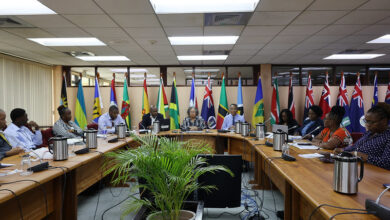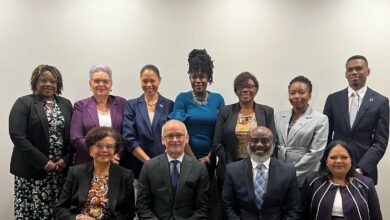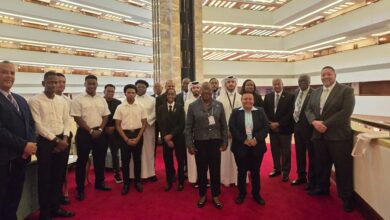The United Nations Environment Programme (UNEP) is pleased to welcome you to this Regional Needs Prioritization Workshop within the Programme on Capacity-building related to Implementation of Multilateral Environmental Agreements in African, Caribbean and Pacific Countries project. This project is supported by the European Community and implemented by UNEP. Therefore, UNEP and the Secretariat of the Caribbean Community (CARICOM) are called to be the leading actors for implementation of the Caribbean component of the project. In this regard and on behalf of UNEP let me express that we are honoured to address the distinguished audience of this Opening Ceremony.
The Caribbean Region, renowned for its beauty and unique culture, has characteristics that make it especially vulnerable to major changes and impacts which are already affecting the environment in one form or the other, particularly those associated with the adverse effects of climate change, loss of biodiversity, drought, land degradation, waste management, amongst other threats to the environment. Globalisation has been a major driving force behind such change combined with development, population growth and trade liberalization. In order to address these challenges, over the last decades, international environmental law has undergone major changes and rapid development. The recognition of international environmental principles and the adoption of Multilateral Environmental agreements require States to be proactive in the incorporation of these principles and regulations in their national legal frameworks and then, ensuring their implementation in tandem with their economic, institutional and policy frameworks.
UNEP works towards ensuring that environmental challenges are properly addressed through environmental law and Multilateral Environmental Agreements. These are key elements to achieve better environmental governance at global, regional and national level.
For the Caribbean Region, UNEP has guided its work under the Small Islands Developing States (SIDs) Barbados Programme of Action recognizing the special vulnerabilities and fragilities that the Small Islands Developing States are challenged with. The Action recommended to be taken by the international community and outlined in the Mauritius Strategy, reinforces that mandate.
To translate political commitment into action, building coalitions and engaging all sectors are critical aspects and has been a guiding principle for UNEP’s work, taking into account and including relevant institutions and partners in its various projects in the Region.
Within this context, the Capacity Building related to MEAs in ACP countries Project intends to contribute to the implementation of strategies for sustainable development, increasing the prosperity of the Region and reducing poverty and improving peoples’ livelihoods by strengthening and enhancing the capacity of Caribbean countries to effectively implement and comply with MEAs and related commitments.
As previously mentioned, UNEP places a high value on the active participation of key partners within the project, such as the Caribbean Community Secretariat, the Caribbean States representatives and other relevant organizations present in this meeting.
In order to respond adequately to the needs of Caribbean countries, this Workshop is an opportunity to review, update and endorse Caribbean in the work plan for the development of the project capacity building needs for implementation of MEAs. It is expected that the outcomes from this Needs Prioritization Workshop, together with the previous review of identified capacity needs will define the scope and nature of the specific activities that will be developed in the project.
We appreciate your presence and we hope that your active participation and opinion will be expressed and shared in order to ensure that the needs and priorities for your respective countries are adequately reflected in the project work plan. On behalf of the UNEP, I wish you a successful and participatory Workshop.





